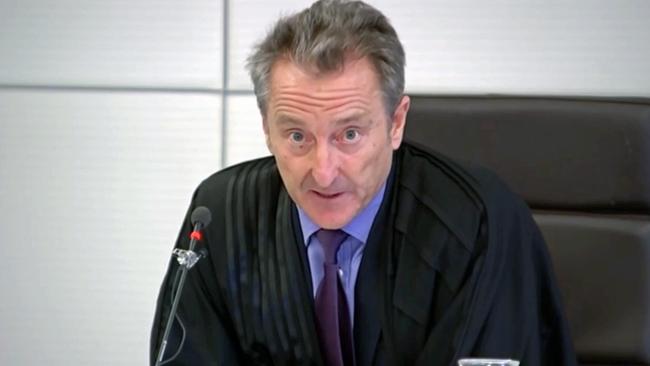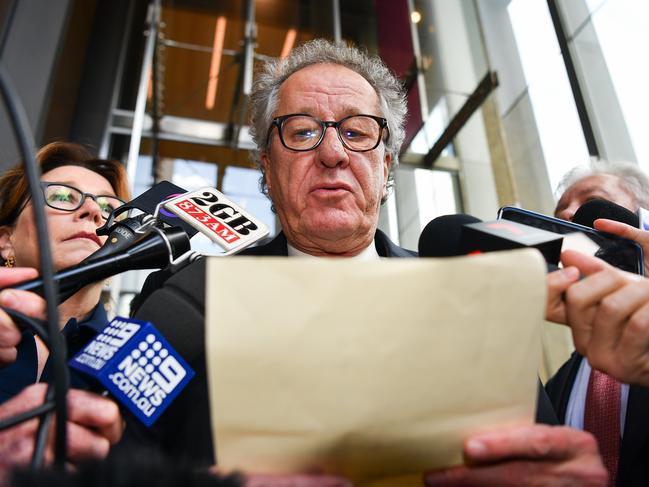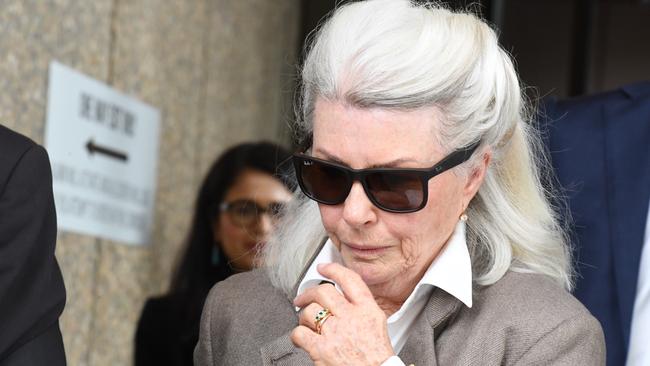Daily Telegraph to appeal Geoffrey Rush decision
The judge in the Geoffrey Rush defamation case was biased and awarded excessive damages to the actor, according to an appeal filed by The Daily Telegraph today.
The judge in the Geoffrey Rush defamation case was biased and awarded excessive damages to the actor, according to an appeal filed by The Daily Telegraph today.
The newspaper cites 16 grounds in support of its claim that the trial miscarried and that Justice Michael Wigney’s conduct of the case “gave rise to an apprehension of bias”.
Justice Wigney found in favour of Mr Rush in April and awarded him $850,000 in damages. A further sum for lost earnings is to be considered this week.

Mr Rush sued the paper over a series of articles in late 2017 which said he had been the subject of a complaint of inappropriate conduct by an unnamed actress during a Sydney Theatre Company production of King Lear.
The actress was later identified as Eryn Jean Norvill who played Cordelia to Rush’s Lear in the production which ran from November 2015 to January 2016.
In its appeal document the newspaper says Justice Wigney’s bias was on display in his finding “that Ms Norvill was an unreliable witness prone to exaggeration and lacking in credibility”.
After the trial concluded Ms Norvill was met with a wave of support on social media after she stood outside the court to say “I told the truth”.
The judge’s assessment of Ms Norvill’s character is one of 16 appeal grounds in support of the newspaper’s claim “that the conduct of the proceedings by the primary judge gave rise to an apprehension of bias”.

During the three-week trial, Ms Norvill had told the court she had felt “trapped” as Mr Rush “slowly” and “deliberately” ran his fingers over her right breast as she played dead on stage.
In refusing the evidence of actor Colin Moody the newspaper says the judge denied it procedural fairness.
The court heard Mr Moody was expected to testify that he heard director Neil Armfield tell Rush to be more “paternal” as his character grieved over the prone body of his daughter, played by Ms Norvill, on stage.
Mr Moody’s evidence would have said that he heard the director tell Mr Rush his performance was becoming creepy and unclear and that he should not stroke her body but place his hand lightly on her face instead.

The newspaper claims bias was also on display in the judge’s decision to refuse the evidence of “Witness X” during the trial.
In an interlocutory judgment in November Justice Wigney said the evidence from Witness X, who worked with Mr Rush well before the production of King Lear, included a number of incidents in the theatre and socially that “could broadly be said to be sexual in nature”.
“The evidence of Witness X, as recorded in the statement, would, if fully accepted, be capable of supporting the substantial truth of the general imputations that Mr Rush had engaged in scandalously inappropriate behaviour in the theatre, and had engaged in inappropriate behaviour of a sexual nature in the theatre,” the judge said at the time.
The newspaper argues “the award of excessive special damages was not supported by the evidence.”
It said the judge’s decision to award special damages for two years contradicted Mr Rush’s own agent Fred Spektor, who said the Shine star would be receiving calls from Hollywood at the same rate within a year.

The newspaper also said Justice Wigney was biased when he said the actors who gave evidence in support of Mr Rush — Robyn Nevin and Helen Buday — were of “impeccable character and integrity”, when these matters were irrelevant and there was no evidence heard in relation to them.
During the trial Ms Buday sang Truly Scrumptious from the witness box and acted out a depiction of a winking emoji with its tongue out.
The judge found Ms Nevin was an “impressive” witness even though she could not recall how she found that Ms Norvill was the complainant before she sent her a supportive text message the day after the first article was published. She also “had difficulty recalling the precise chronology of events”, according to the judge.
The newspaper said Justice Wigney’s statement that there was no evidence to suggest Mr Rush had sexually harassed anyone in the past showed bias when this was not at issue in the proceedings and not put to him in cross examination.
The Daily Telegraph also cites the “derogatory” terms and manner in which Justice Wigney dealt with the newspaper during proceedings.



